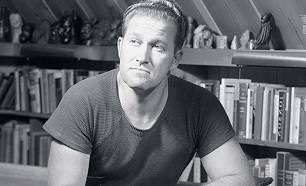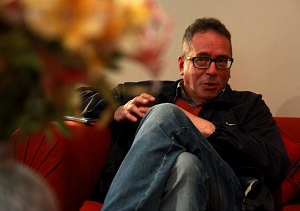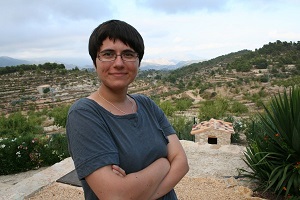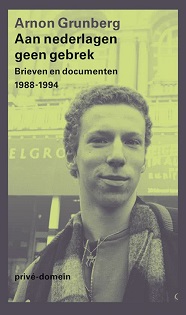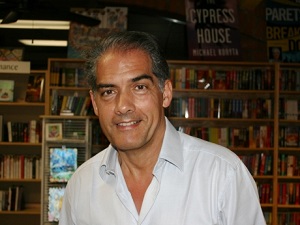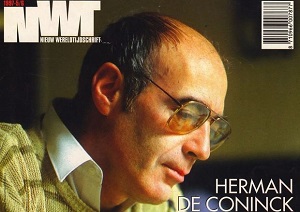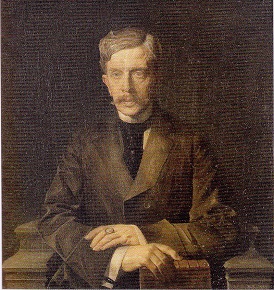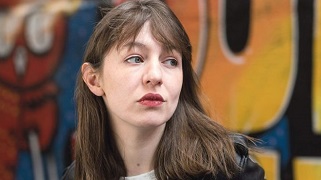De Nederlandse schrijver Leon de Winter werd geboren in ’s-Hertogenbosch op 24 februari 1954. Zie ook alle tags voor Leon de Winter op dit blog.
Uit: God’s gym
“Opnieuw knikte de man, met gebogen hoofd nu. Maar hij was zo lang dat Joop nog steeds onbelemmerd zijn gezicht kon zien. `Waar wacht je op! Weg! Wil je dat ik de politie bel!’ `Het mag niet zo blijven,’ zei de man terwijl hij naar zijn handen keek. ‘Als mensen sterven hebben ze recht op een ritueel. Mirjam moet een graf krijgen. Ik bemoei me nergens mee, maar u reageert niet. U neemt de telefoon niet op. U haalt de post niet uit uw brievenbus. Ik moest iets doen. Ik zei maar dat ik namens u handelde. Doet u het dan alstublieft zelf. Doe ’t voor haar. Ze heeft er recht op. Mister Koepm’n, ze heeft nog steeds rechten!’ Het gezicht van de grote man trok opeens in een kramp en zijn ogen stroomden vol. Terwijl hij in zijn handen kneep, perste hij zijn lippen op elkaar en probeerde zijn tranen in te slikken. Maar de tranen bleven stromen en met diepe uithalen stond de man voor zijn deur te huilen. Zijn schouders schokten en hij opende zijn mond en haalde diep adem om de pijnscheuten van verdriet te kunnen weerstaan. De aanblik van de man was niet te verdragen. Joop deed een stap opzij en zocht steun bij de muur naast de kapstok, met zijn schouder tegen het rugzakje, en onttrok zich aan het uitzicht door het raam. Gedempt hoorde hij het gesnik van de man. De man had de motor bestuurd. Zijn dochter was gestorven, maar de man was ongedeerd, stond hier nu te janken alsof het zijn eigen kind was geweest. Hij had geen recht op medelijden. Niet van Joop. Niet hier. Joop wachtte tot er geen gesnik meer door de deur klonk. Na een paar minuten leek de man zijn huilende lijf onder controle te krijgen. Het gesnik stopte en Joop hoorde dat de man zijn neus snoot. `Mister Koepm’n, sir?’ hoorde Joop vervolgens. ‘Mister Koepm’n? Luistert u even naar me? Ik weet dat u me hoort. Mister Koepm’n, ik heb gisteren m’n zaak verkocht! U bent er geweest, pas geleden nog! Ik moet daar les blijven geven, maar ik heb het verkocht en ik heb er geld aan overgehouden! Real money! Mister Koepm’n, ik wil een gedenkteken voor haar oprichten! Een tempel, sir! Een beeld in een Griekse tempel met zuilen! Zoiets als de tempel van Artemis in Ephesus! Iets wat er eeuwig zal staan! Ik betaal alles, sir!”
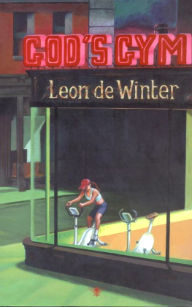
Leon de Winter (’s-Hertogenbosch, 24 februari 1954)
Cover

